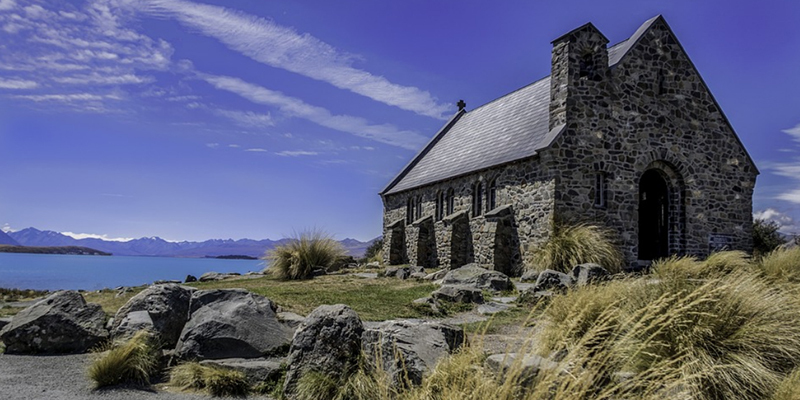Embarking on a journey across the Tasman Sea, Australians considering a move to New Zealand face a unique set of opportunities and challenges. This article offers an insightful guide into this life-changing transition, highlighting key aspects from cultural nuances to practicalities.
Visa and Residency Regulations
Moving from Australia to New Zealand is relatively straightforward regarding visa and residency regulations, thanks to the Trans-Tasman Travel Arrangement. As an Australian citizen, you’re eligible to live, work, and study in New Zealand without pre-arranging a visa. Upon arrival, you’re typically granted a New Zealand resident visa, allowing you the freedom to explore employment and educational opportunities similar to a local citizen. This arrangement fosters an easy transition for Australians, but it’s crucial to stay updated on any policy changes that might affect your status.
Despite this ease of entry, there are nuances to consider, especially regarding permanent residency and citizenship. For instance, while you can live and work indefinitely, certain welfare benefits and the ability to vote might require additional steps or a specific residency status. It’s advisable to familiarise yourself with these aspects, especially if you’re planning a long-term stay or considering permanent relocation. Consulting with immigration experts or official government resources can provide clarity and ensure a smooth transition.
Cultural Similarities and Differences
Australia and New Zealand share a rich, intertwined history, marked by common British colonial pasts and similar cultural foundations. This shared history manifests in language, customs, and social norms, making Australians generally feel quite at home in New Zealand. However, it’s crucial to appreciate the distinct cultural identity of New Zealand, deeply influenced by its indigenous Māori culture. The Māori heritage is a core part of New Zealand’s national identity, reflected in the language, place names, and cultural practices that are unique to the country.
Embracing the Māori culture will enrich your experience in New Zealand. Learning about the Treaty of Waitangi, the founding document of New Zealand, and understanding the concepts of ‘mana’ (respect) and ‘whānau’ (family) can greatly enhance your social and cultural understanding. Additionally, New Zealanders, or ‘Kiwis’, are known for their friendly and laid-back nature, but they also value modesty and understatement. Recognising and respecting these social cues will help in building relationships and integrating into local communities.
Cost of Living and Housing
The cost of living in New Zealand is a critical aspect to consider and can vary greatly depending on your location and lifestyle choices. Major cities like Auckland, Wellington, and Christchurch tend to have higher living costs, comparable to big Australian cities like Sydney and Melbourne. Essentials like food, utilities, and transportation are generally on par with Australian prices, but some items might be more expensive due to import costs. It’s advisable to research and budget accordingly, especially if you’re moving from a less expensive area in Australia. Take into account the landscape of Australian movers to ensure a well-informed and financially savvy relocation.
Housing is a significant factor in the cost of living. In some of New Zealand’s urban areas, housing prices have risen sharply, and finding affordable housing can be challenging. Renting can be a viable option, though rental prices in popular cities can be high. Additionally, the housing market might offer fewer choices compared to what you’re used to in Australia. It’s worth exploring different regions and suburbs, as there are variations in housing costs and availability. Planning your housing situation in advance, possibly before moving, can ease the transition and reduce potential stress.
Weather and Environment
New Zealand’s weather and environmental conditions present a notable change from Australia. The country experiences a more temperate climate, with milder summers and cooler winters compared to most parts of Australia. This climate is conducive to lush green landscapes, making New Zealand famous for its natural beauty. However, the weather can be more unpredictable, and it’s common to experience four seasons in a day. This variability is something Australians, especially those from warmer and drier regions, might need time to adjust to.
New Zealand’s diverse landscape offers a plethora of outdoor activities, from skiing in the Southern Alps to enjoying the beaches in the North Island. The country’s commitment to environmental preservation is evident in its national parks, pristine beaches, and conservation efforts. Adapting to the outdoor lifestyle can be a delightful aspect of living in New Zealand. It’s advisable to gear up for various outdoor conditions and embrace the opportunity to explore the unique and breathtaking scenery that New Zealand has to offer.
Moving to New Zealand from Australia
Moving from Australia to New Zealand presents a blend of familiar comforts and new experiences. By understanding the differences in culture, lifestyle, and regulations, Australians can smoothly transition to life in New Zealand, embracing its unique beauty and opportunities while cherishing the ties that bind these close neighbours.

